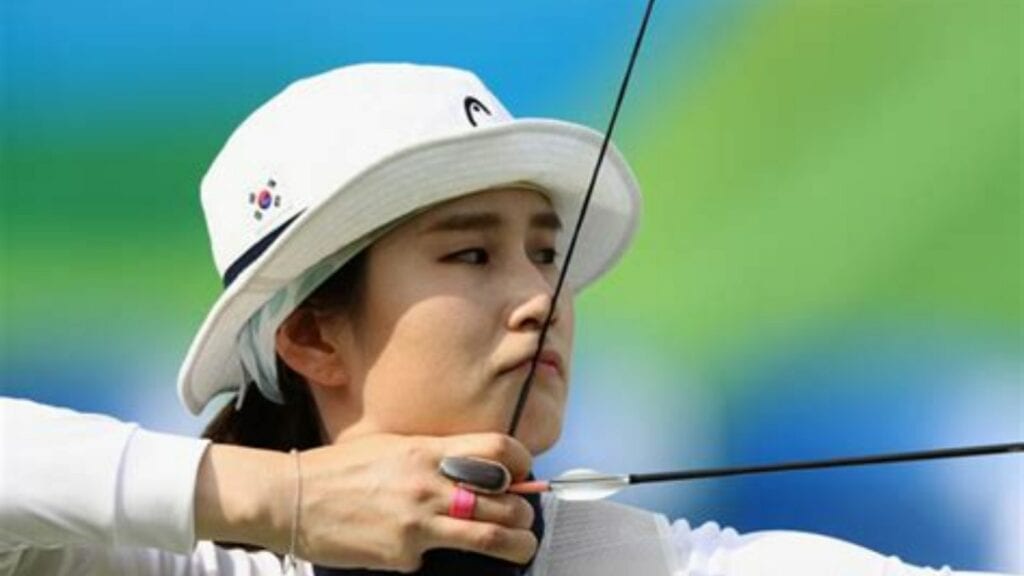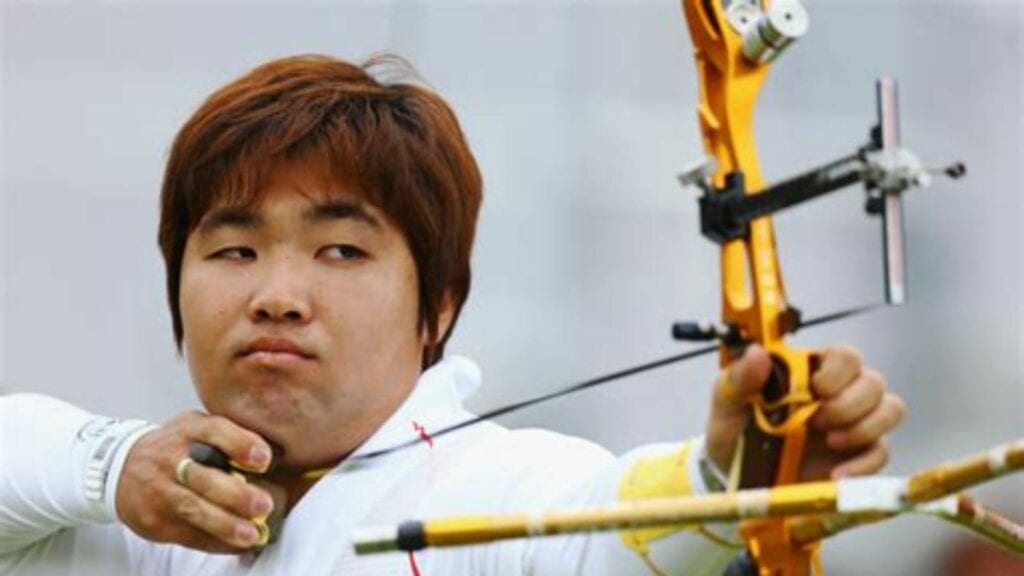10 Reasons why South Korea is so good in Olympic Archery
South Korea women's archery team has just clinched their 10th straight Olympic gold.

At every Olympics, South Korea is the nation to beat when it comes to archery (via Olympics)
A few results are near certainties at every Summer Olympic Games: Kenyans winning the steeplechase, Team USA winning in the pool, and South Korea finishing on top of the podium in archery.
Since the reintroduction of the sport in Munich in 1972, South Korea has won 28 of the 40 gold medals contested. In Women’s recurve, South Korea has won almost all the team and individual golds on offer since 1984. The only exception came in the 2008 Beijing Olympics where home favorite Zhang Juanjuan beat South Korean defending champion Park Sung-Hyun in the Women’s individual gold medal match.
The Men’s medal tally is more cosmopolitan but South Korea still has seven golds. South Korean archers also hold nearly all World Records in the sport. In Rio Olympics 2016, the East Asian nation won all four gold medals on offer and look all set for a repeat at Tokyo 2020.
Here are the 10 reasons South Korea excels in archery
South Korea has been incredibly successful in Olympic archery because they start training their young talents early, have great coaches, and provide consistent support throughout their journey.
Schools and local clubs help find talented young archers, and they get to train in top-notch facilities. This combination of resources, talent scouting, and disciplined practice has created a dominant archery culture in South Korea, consistently producing world-class athletes.

Here are the 10 prominent reasons behind their sustained success:
10. History and Tradition
Korea has a tradition of archery dating back to pre-historic times. The traditional Korean bow is known as the gakgung or horn bow. This reflex bow is different from the standard recurve bow in that the bow curves into a C shape when unstrung.
The Korean victory in several battles against Japanese invasion in the 16th century was credited to the skill of Korean military archers in using this bow. By the 19th century archery had become a popular recreational sport in Korea after it’s military use declined.
9. Champions inspiring others
Kim Jin-ho became the first ever modern archery champion from South Korea at the 1979 World Championships, leading to the archery revolution in the nation. Coach Kisik Lee was instrumental in setting up an archery program in the country and was Korea’s national coach from 1981 to 1997.
This was the period when Korean dominance got set in stone through archers such as Kim Soo-nyung. Lee later coached non-Korean champions such as Brady Ellison and Simon Fairweather.
8. Junior focused programs
Archery training in Korea begins as early as primary school. Children can receive up to two hours of training per day. Those who show talent are identified and coached through middle school, high school and university. The very best join the professional circuit and the elite get chosen into the national team.
7. Competitive professional archery teams
Even back in 2018, there were 51 archery teams in South Korea. Most of them focused on either men’s or women’s recurve archery or both. Such academies are run by the government, universities or corporate companies.
Competitive leagues and competitions promise financial security to budding archers. They aren’t different from an EPL in football or NBA in basketball. Most Korean champions have emerged from this system.
6. Coaches
According to top Indian archer Atanu Das, “Just as an example, if you have three-four good coaches in India, you’ll find 50 good coaches in South Korea”. Notable South Korean coaches include Kim Hyung Tak, Moon Hyung Cheol and the aforementioned Kisik Lee.
5. Practice, practice, practice
There is no substitute to hard work. This adage is as true in the Olympics as it is in other walks of life. The average Korean archer trains up to 10 hours a day and 2500 arrows a week. In an Olympic year the archers train outdoors even amid rains and harsh winters.

The teams use innovative training methods such as bungee-jumping to deal with nerves and practicing at a crowded baseball stadium. For the Tokyo Games their team had practiced at a replica of the archery arena which even included local bird sounds.
4. Intense competition
With such a highly developed system, it is no wonder that competition among South Korean archers is so fierce compared to the rest of the world. In 2004, a non-Korean archer who was ranked 5th in the world had the same competition record as an archer placed 90th in South Korea.
In India, a Deepika Kumari gets a lot of media attention, but in South Korea “Many former gold medalists have been struck off a year or so later because others (and some of them newbies) have surpassed them in ranks. It’s a sport where seniority really doesn’t matter at the end of the day, allowing for true competitive spirit to flourish” as per a former Korean archer.
Their pool of quality archers is very deep. If one archer isn’t performing well, they will be replaced by someone else.Atanu Das on South Korean archers and archery
3. Pop culture
Archery has got assimilated into Korean youth culture. Korean pop or K-Pop is popular all around the globe. The Idol Star Athletics Championships is a TV program where K-Pop idols compete with each other in multiple sports including athletics, e-sports and archery.
2. Genetics (?)
This is a contentious topic that was raised when Im Dong-hyun, the archer who is legally blind in his left eye with 20/200 vision, set an individual and team World Record at the 2012 London Olympics. Koreans having genetically greater finger-tip sensitivity and body awareness was cited as one of the causes behind their Olympic success.
1. Equipment and modern technology
South Korea is a major global technology hub. Some of the high-tech expertise has also been transferred to the sports arena. For their Rio 2016 preparations, the Sambodormo archery venue was replicated in Seoul.
Archers watched a virtual simulation of the competition while their brain-waves were monitored. Archers were told when they would lose concentration based on changing patterns of the brain-waves. This helped the archers get a better grasp of different match situations and the results were there for all to see.
Modern scientific training, a world-class sporting system, over 40 years of excellence, and presence in culture and tradition are the reasons why the nation of South Korea does so well in archery.
In case you missed:
- Who are Michaеl Phеlps’ kids? Everything you need to know
- Olivia Dunne net worth 2024: How much LSU Gymnast is earning from NIL endorsement deals?











Niyati
(168 Articles Published)